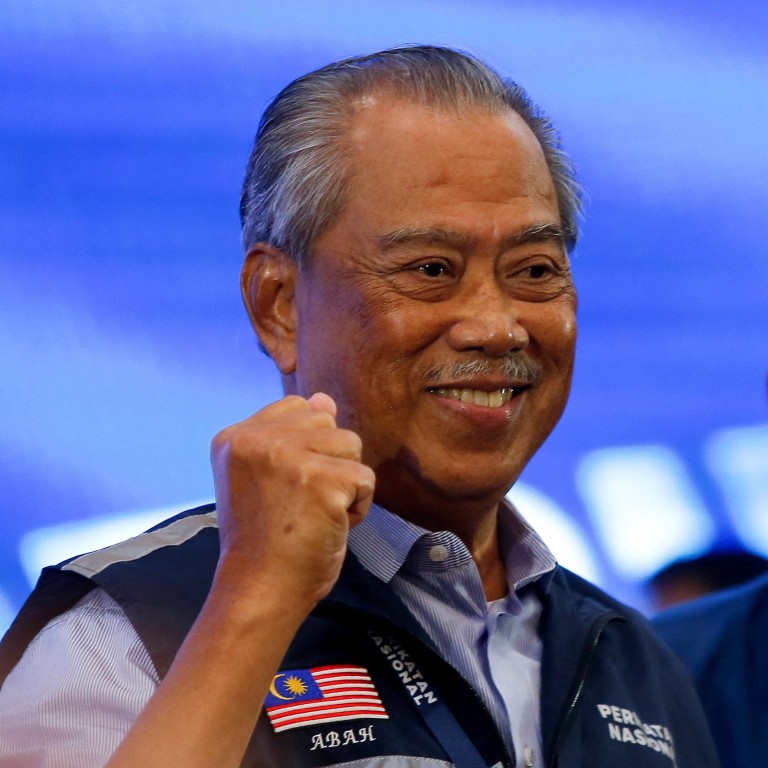
Explainer | Malaysia election 2022: Muhyiddin on pole position, Anwar still trying, Zahid under pressure – what you need to know after Saturday’s deadlocked vote
- Muhyiddin’s strategy of pitching Perikatan Nasional as conservative alternative to major parties could have worked in rural constituencies
- Anwar could run risk of alienating own party members as he considers possible collaboration with Barisan Nasional to form coalition government
Some observers had earlier expected PN – comprising Muhyiddin’s Malays-only Bersatu party and the Islamist PAS – to suffer a wipeout in Saturday’s polls. Instead, it made major inroads across the country on the back of what some analysts are calling a “gelombang hijau” or “green wave” – referencing PAS’ white moon on green background emblem.
Barisan Nasional (BN), the de facto governing alliance before the polls – and Malaysia’s long-time party of government – suffered heavy defeats, mainly at the hands of PN. The election result marks a major embarrassment for BN and its chairman Ahmad Zahid Hamidi, who had pushed for an early vote on the pretext that the ground was sweet in favour of the alliance.
Here are the key facts on what lies ahead.
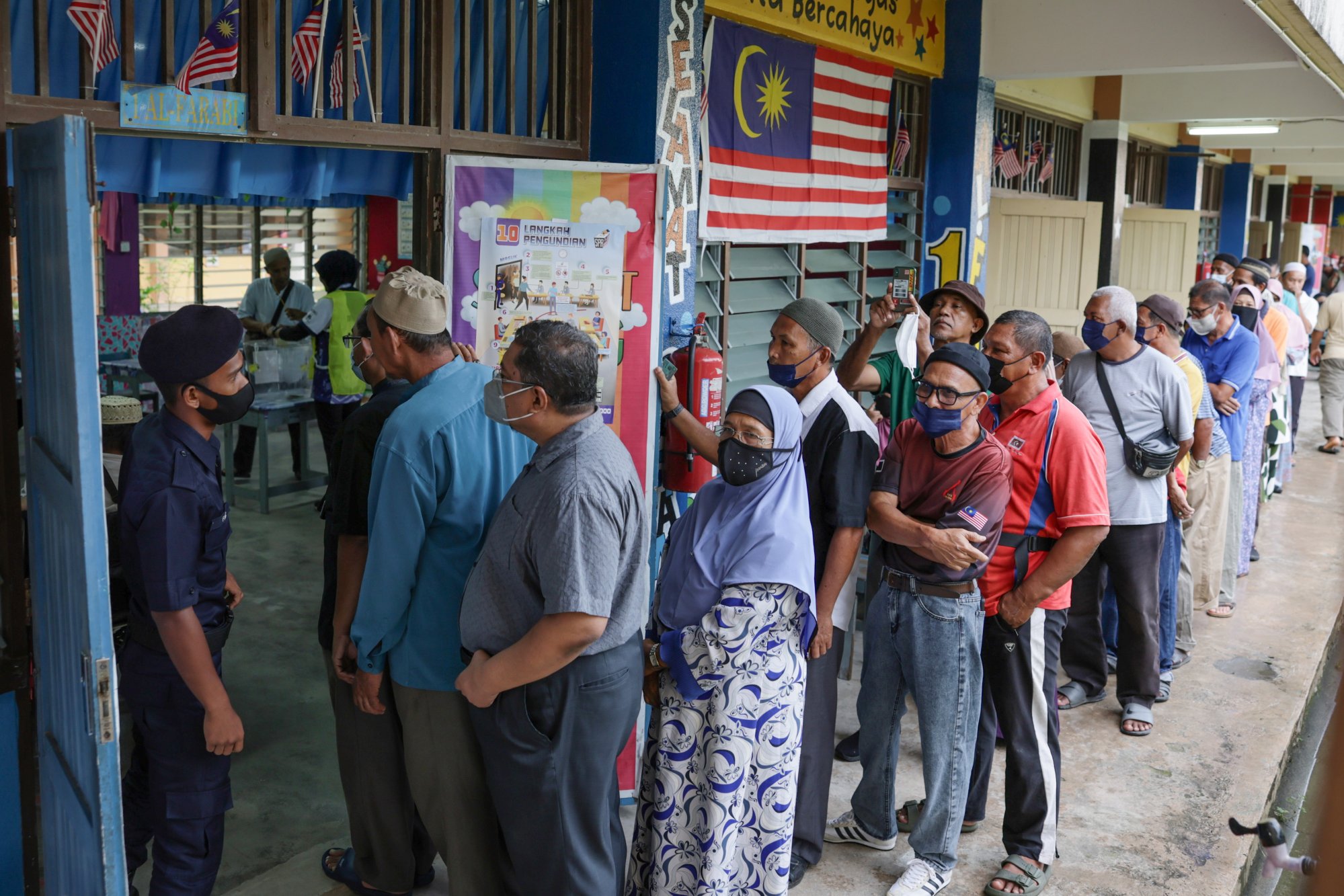
Muhyiddin’s machinations
Muhyiddin, 75, engineered a party coup in 2020 to topple the Pakatan Harapan that he was part of and which was in power at the time.
He emerged as prime minister following a royal appointment, but was forced to resign in August 2021 after others he had orchestrated the coup with, particularly BN, moved against him.
His Perikatan Nasional alliance’s strategy ahead of Saturday was to pitch itself as a conservative-leaning alternative to both the infighting and corruption-plagued BN, and the multiracial PH. Observers said the strategy might have worked in many of the country’s rural constituencies.
Smaller political blocs based in Sabah and Sarawak states on Borneo island, which have sought greater autonomy, could potentially play decisive roles if they aligned Muhyiddin’s coalition. On Sunday evening, Muhyiddin said the two alliances - Gabungan Parti Sarawak and Gabungan Rakyat Sabah - had indicated they would give him support to be the next prime minister.
Other MPs too will offer their support, Muhyiddin said in a statement, adding that he would inform the king that he now possessed a simple majority to become prime minister and form the next government.
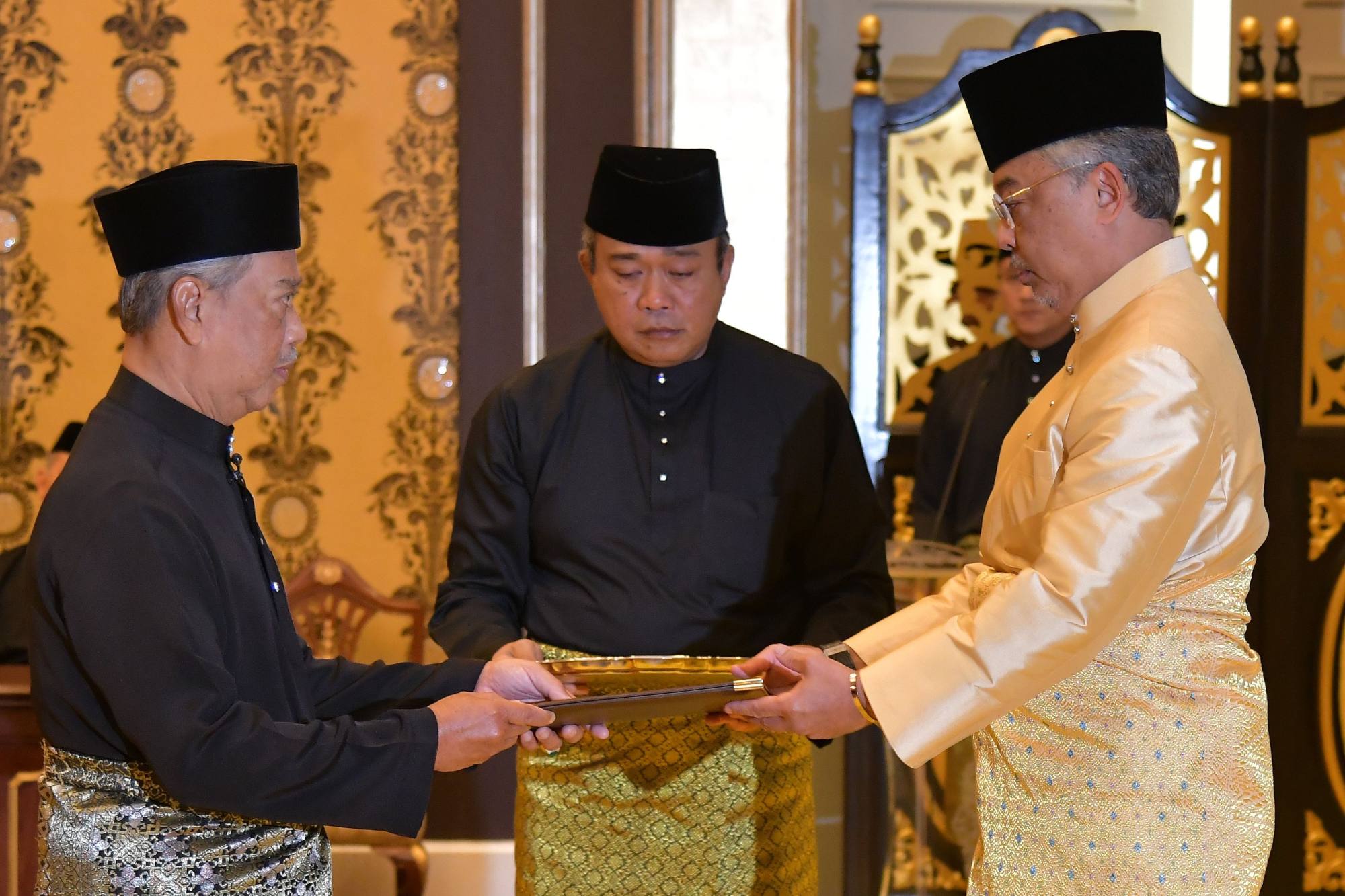
The king’s role
With no single coalition wielding a simple majority, the king, Sultan Abdullah Sultan Ahmad Shah, on Sunday directed their chiefs to apprise him on the state of their alliances by 2pm on Monday.
The winner with the most votes may be given the first opportunity to negotiate a minority government, or candidates for prime minister may be allowed to forge pacts between their coalitions, as was the case in the formation of the last two governments.
If that fails, the king may determine which leader he believes commands majority in parliament, though this would not be tested publicly until parliament reconvenes.
Following the 2020 coup orchestrated by Muhyiddin, Sultan Abdullah – who is serving a rotational five-year stint as the king – picked Muhyiddin on the basis that he was most likely to command majority support.
The king’s decision on the new government and appointment of the prime minister would be final, in line with the constitution, the national palace said in a statement Sunday.
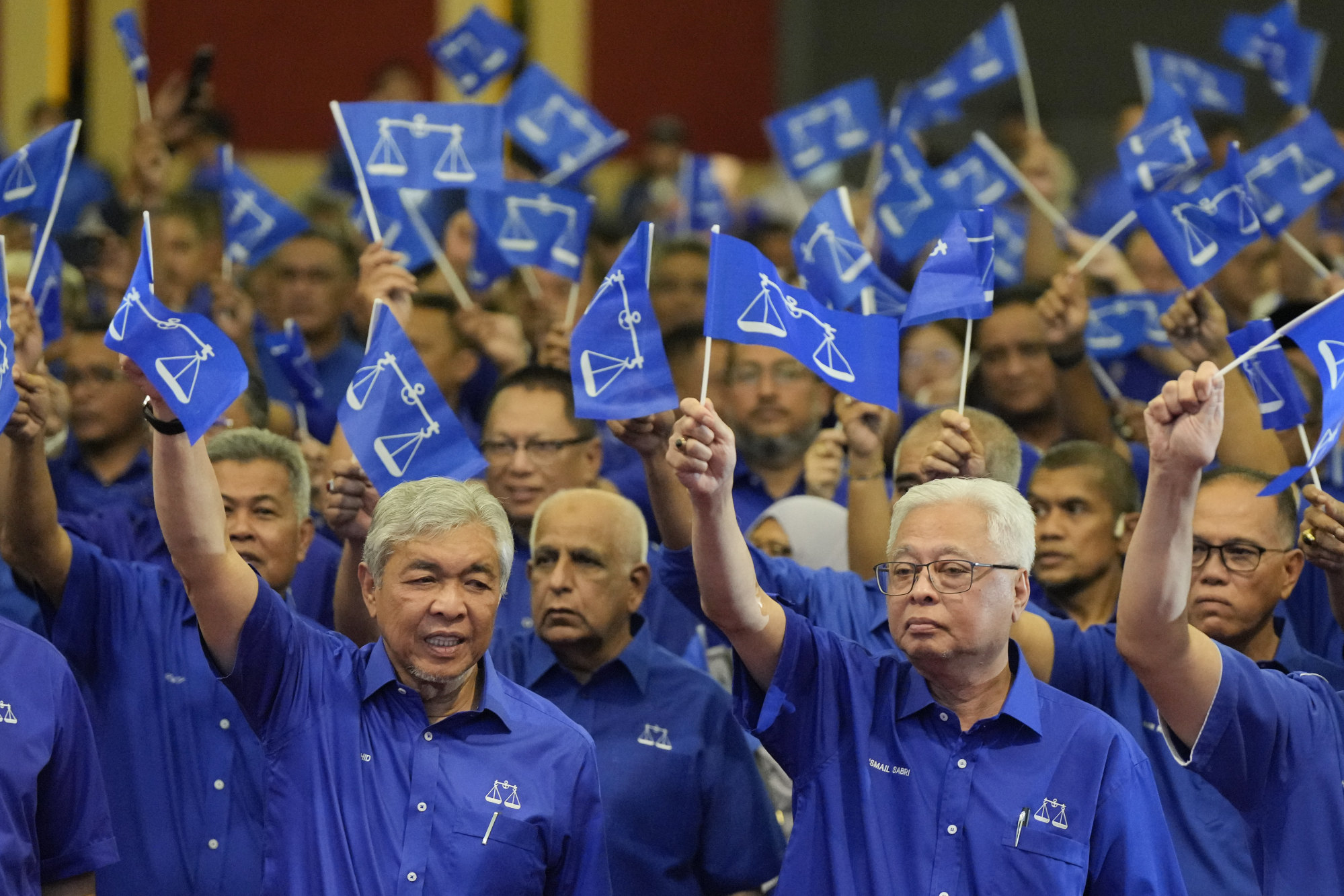
Umno in turmoil
The United Malays National Organisation (Umno) appeared to be in disarray on Sunday, following its poor electoral showing. The party, once the country’s undisputed number one political force, won just 26 seats. That compared with 73 for PAS and Muhyiddin’s Bersatu – both of which require members to be Muslims, like Umno.
On Sunday afternoon, its top-ranking leaders gathered for a political bureau meeting – which some had suggested was to discuss a possible tie-up with arch-rivals PH to stymie Muhyddin’s move to form the next government.
At least three personalities, including the head of BN in the country’s richest state of Selangor, said they wanted Ahmad Zahid to resign over the election result. A meeting of BN’s Supreme Council scheduled for 8pm on Sunday has been indefinitely postponed
Ahmad Zahid has not commented on the latest developments. In the early hours of Sunday he said he was ready to work with other parties to form a stable government.
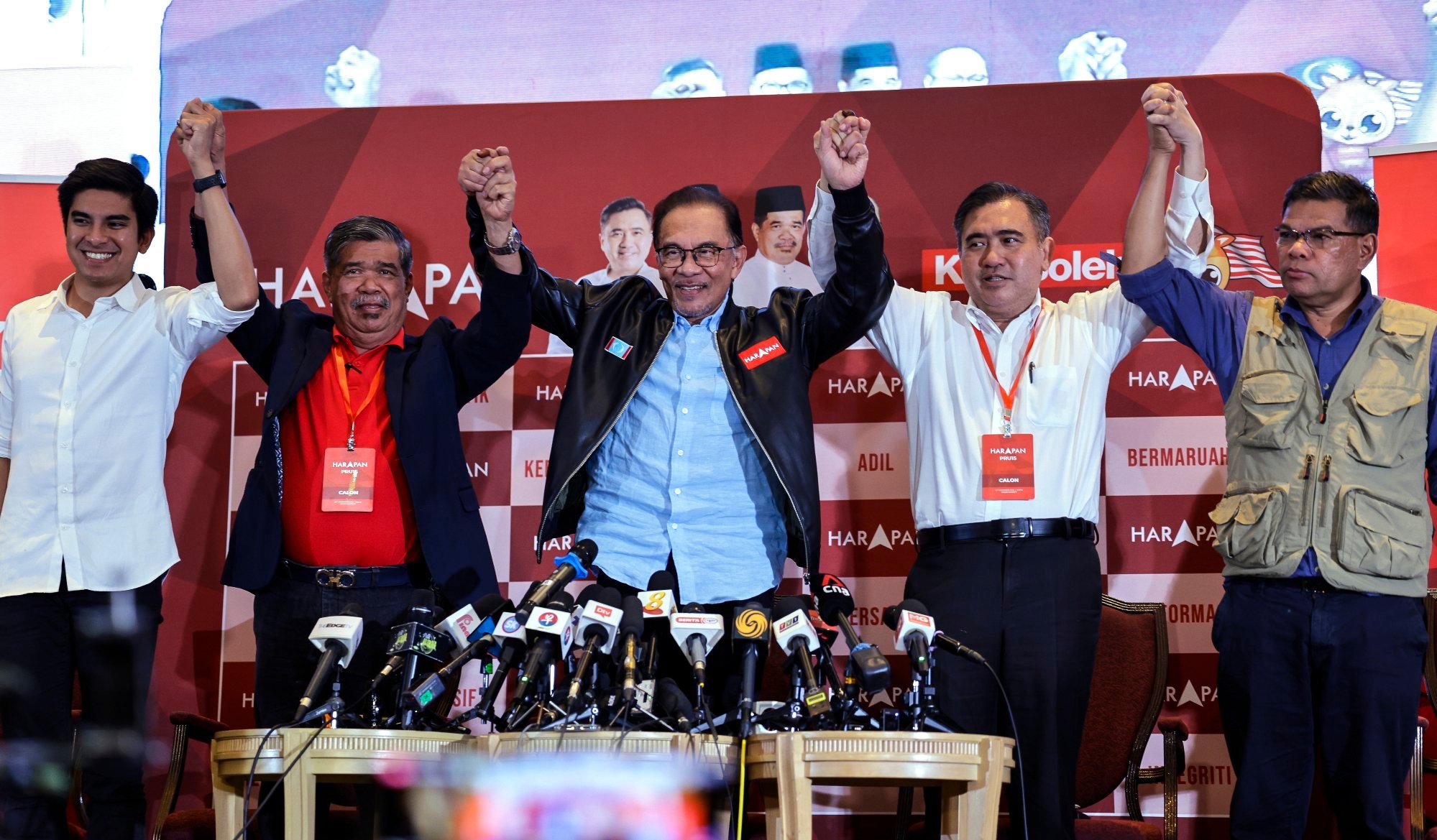
Anwar’s challenge
Veteran opposition leader Anwar Ibrahim, who has come tantalisingly close to leading Malaysia during his tumultuous political career, is suddenly on the cusp of clinching the top job – but a final hurdle stands in his way.
Pakatan Harapan’s 82 seats constitute the biggest haul among the competing blocs, but it is short of a majority needed to form a government.
With Muhyiddin saying in no uncertain terms that PN would not work with PH, Anwar is left considering cooperation with BN.
That may be hard to square away with other personalities within PH, which has its roots in a mass movement formed to rid the country of corruption and poor governance blamed on decades of BN rule.
Islamists rise in Malaysia but next leader must govern for all
BN and Umno are also associated with the 1MDB scandal that led to their 2018 electoral defeat and the jailing of ex-prime minister Najib Razak – a former BN chief – earlier this year.
“It would be difficult as Anwar may alienate his own party members,” Asrul Hadi Abdullah Sani, managing director of advisory firm BowerGroupAsia, told Bloomberg. “Anwar and PH will need to make tough decisions.”
Anwar said on Sunday he had reached the threshold to form a government, but did not provide evidence.
“We have managed to get support of MPs,” he said. Both he and Muhyiddin will now seek to meet the king to make their case.
Reporting by Reuters and Bloomberg
